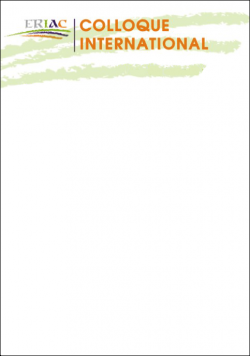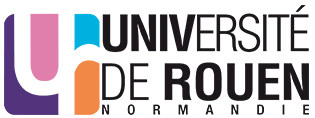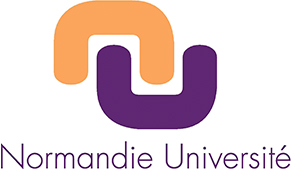Prosodie et iconicité
Le groupe de recherche ERIAC de l’université de Rouen organise une
Conférence Internationale sur Prosodie et Iconicité les 9 et 10 avril 2009.
Conférenciers pléniers : John Ohala, Université de Berkeley; Anne Wichmann, Université de Central Lancashire; Antoine Auchlin, Université de Genève.
Le but de la conférence est d’apporter un éclairage nouveau sur l’interaction entre prosodie et iconicité en élargissant le nombre de paramètres traditionnellement examinés et en confrontant des modèles théoriques variés.
Les paramètres pris en considération peuvent inclure ceux de la liste suivante : critères sociolinguistiques (âge, sexe, catégorie socioéconomique, région) ; différentes sortes de situations d’énonciation ; affect (attitudes et émotions) ; gestes ; contraintes morphosyntaxiques. L’étude n’est pas limitée à cette liste.
L’analyse pourra se poursuivre dans des théories comme la théorie de la Structure de l’Information, la théorie de Grice, la théorie de la Pertinence, la théorie de la grammaticalisation, les codes biologiques de Gussenhoven, la modélisation prosodique, etc.
Pour plus d’informations sur le site internet de la conférence : www.prosico2009.com
>> Programme (pdf)
The ERIAC research group of the University of Rouen will be organizing an International Conference on Prosody and Iconicity on 9-10 april 2009.
Plenary Speakers: John Ohala, University of Berkeley; Anne Wichmann, University of Central Lancashire; Antoine Auchlin, University of Geneva
The purpose of the conference is to shed new light on the interrelation between prosody and iconicity by enlarging the number of parameters traditionally considered and by confronting various theoretical backgrounds.
The parameters taken into account may include but are not limited to the following:
– socio-linguistic criteria (age, sex, socio-economic category, region);
– different kinds of speech situation;
– affect (attitudes and emotions);
– gestures;
– morpho-syntactic constraints.
The analysis could be pursued in theoretical frameworks such as Information Structure theory, Grice’s theory, Relevance theory, grammaticalization theory, Gussenhoven’s biological codes, prosodic modelling, etc.






